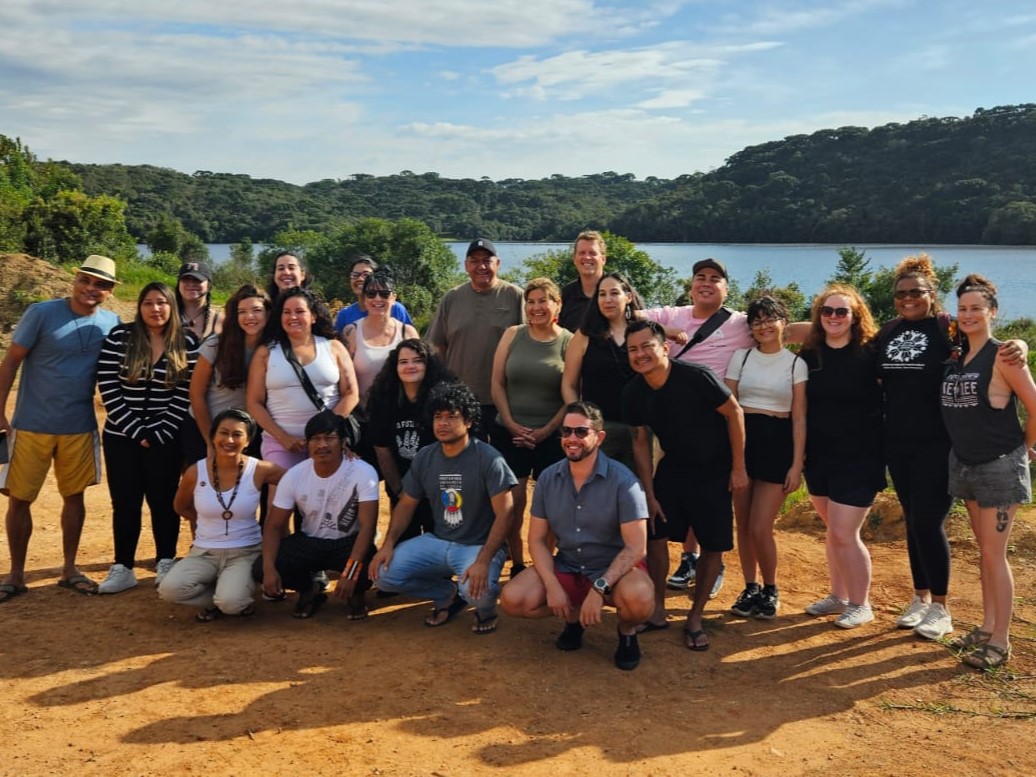
From May 2-12, 2024, Tim Isnana, a lecturer from the Faculty of Indigenous Business & Public Administration at the FNUniv, recently led a group of students to Brazil to enhance their understanding of Indigenous Brazilian communities. The trip offered insights into various aspects of Indigenous life, including history, culture, business, and the impacts of industry and governance.
Among the students were Nancy Greyeyes and Kelsey Clayton. Nancy, interested in the displacement of Indigenous people by Eucalyptus farmers, aimed to learn about their healing processes post-colonization. Kelsey was curious about the diversity and business operations in Brazil.
Nancy participated in a water song and ceremony, which resonated with her as a water protector in Canada. A humorous incident occurred when she was bitten by an ant during a community game, leading to an unintentional and memorable moment. Kelsey’s memorable experience included a forest trek mishap, showcasing the adventurous spirit of the trip.
Both students admired the cultural immersion and decolonization efforts in the Indigenous communities. Nancy was fascinated by their prioritization of language and traditional spirituality, noting similarities to Canadian Indigenous practices. Kelsey enjoyed participating in local music, dances, and trying new foods, broadening her appreciation for Brazilian cuisine.
The trip enhanced their understanding of course material. Nancy highlighted the importance of meeting people involved in cultural revival efforts. A notable learning moment was her conversation with a community matriarch about reclaiming land from industrial exploitation. Kelsey gained insights by engaging with locals, discovering the general lack of awareness about Indigenous people in Brazil.
Nancy’s experience reinforced her determination to build a healing centre for her community, focusing on trauma recovery through cultural practices. Kelsey formed deep bonds with Brazilian students, reflecting on the profound personal impact of the trip.
During their visit, the students explored four Indigenous communities: Tabaçu Reko Ypy village, Ara Pyhaú community, Kanané-Porã Indigenous community, and Território Sagrado in Piraquara Metropolitan State Forest. These locations were chosen to provide a comprehensive understanding of Indigenous Brazilian communities and their similarities to First Nations in Canada. The curriculum was designed to connect academic perspectives with real-world issues.
Future plans include hosting Brazilian students in Canada to experience First Nations culture, fostering global understanding and appreciation of Indigenous cultures.